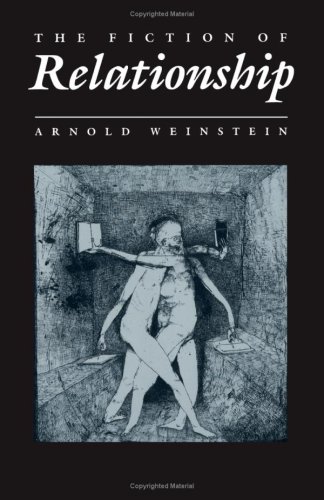Princeton Legacy Library
2 total works
"A clear and straightforward discussion of the ways in which literatures and their comparative study must depend upon the problematics of interpersonal and other relations. . . . This study will prove as useful as it is wide-ranging, and indeed, comparative in the good sense."--Mary Ann Caws, Graduate School, City University of New York
"Here is a comparatist working at the peak of his powers. . . . Weinstein moves easily from Goethe and Flaubert to Kafka or Joyce or Boris Vian. Locating fictions of relationship `at the heart of both literary criticism and human affairs' and acknowledging his own `distinctly humanistic' concerns, Weinstein writes in an urgent tone and eloquent voice, inflecting the theme of `relationship' in every way: in its surrender to the erotic, its frenzied drive for control of the Other, in its ability to confer identity or eclipse difference. . . . When he couples texts (e.g., William Burrough's Naked Lunch and C. de Laclos's Les liaisons dangereuses), he takes risks that bear brilliant fruit. Exploring famous texts and relatively unknown ones, Weinstein infuses the traditional study of fiction with new energy."--Choice
Originally published in 1988.
The Princeton Legacy Library uses the latest print-on-demand technology to again make available previously out-of-print books from the distinguished backlist of Princeton University Press. These editions preserve the original texts of these important books while presenting them in durable paperback and hardcover editions. The goal of the Princeton Legacy Library is to vastly increase access to the rich scholarly heritage found in the thousands of books published by Princeton University Press since its founding in 1905.
The author charts the interaction between self and world through four major phases whereby the self initially has marginal status (the picaresque), begins to flourish and court recognition (Defoe, Marivaux, and Fielding), glows defiant and tries to impose its will on society and the other (Prevost, Richardson, Goethe, and Laclos), and finally makes a prophetic inward turn (Diderot, Sterne, and Rousseau). He shows how these phases also reflect the development of literature as it moves from mimetic to generative fiction, from the power of gesture to that of word.
Originally published in 1981.
The Princeton Legacy Library uses the latest print-on-demand technology to again make available previously out-of-print books from the distinguished backlist of Princeton University Press. These editions preserve the original texts of these important books while presenting them in durable paperback and hardcover editions. The goal of the Princeton Legacy Library is to vastly increase access to the rich scholarly heritage found in the thousands of books published by Princeton University Press since its founding in 1905.

